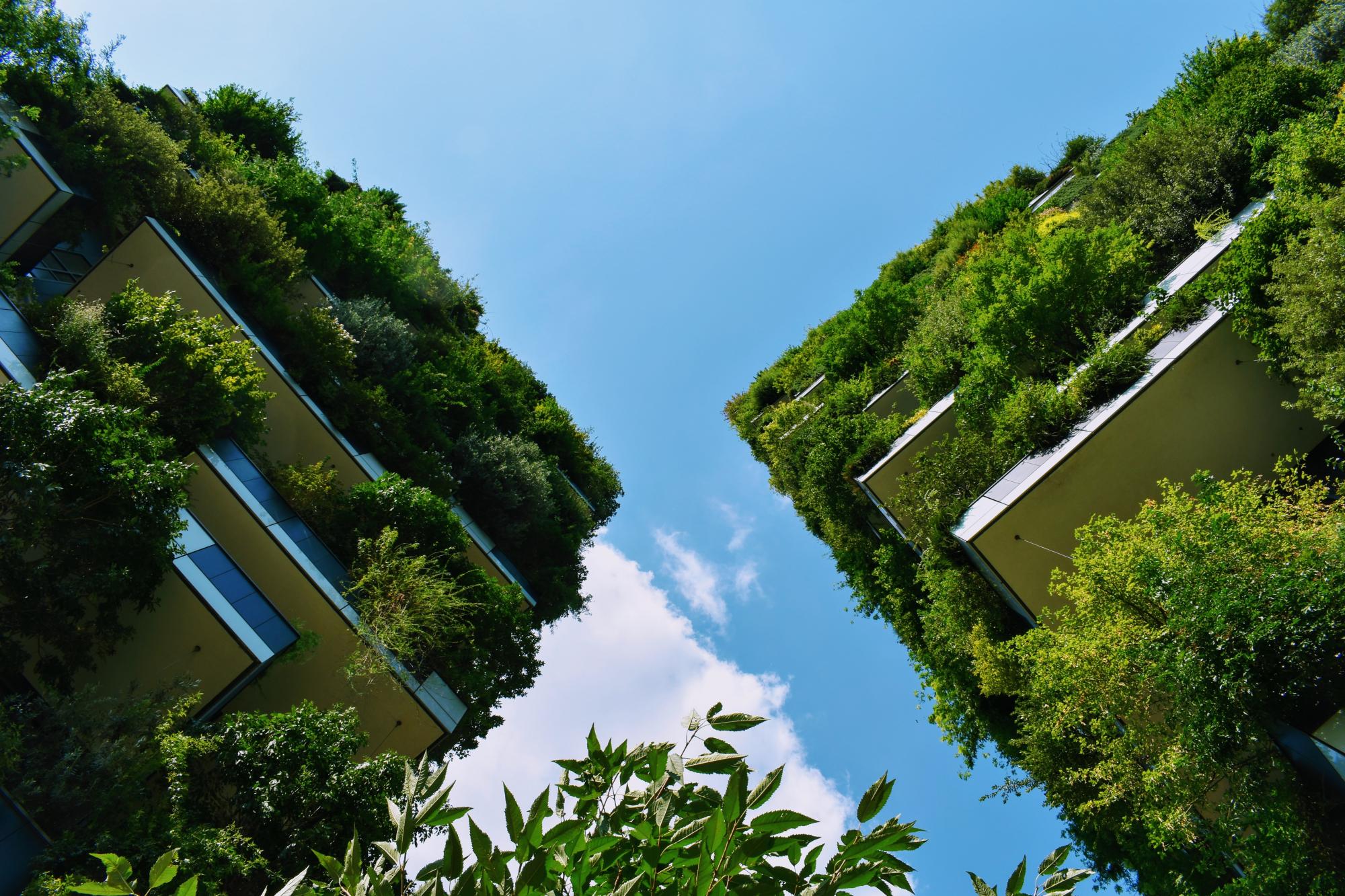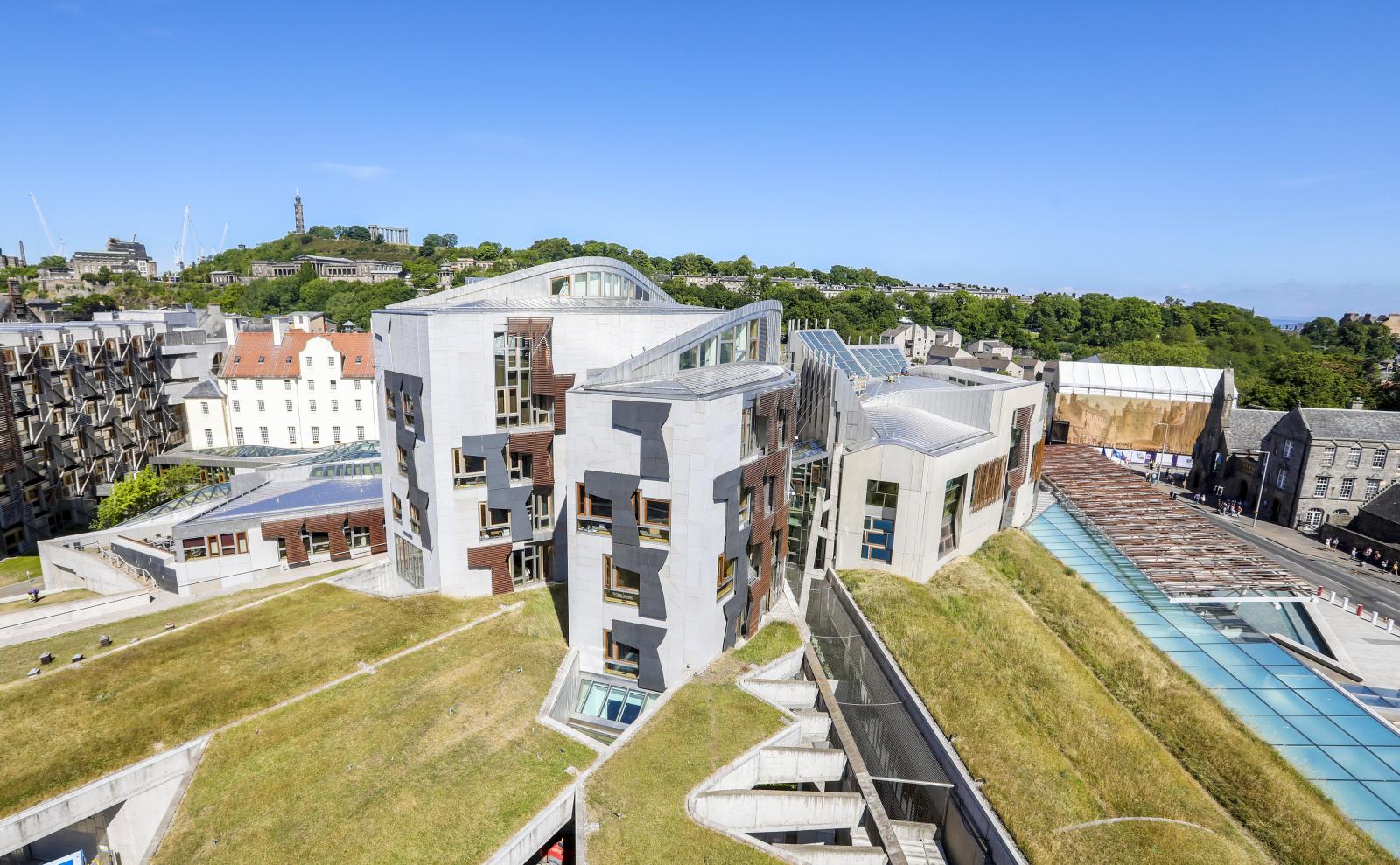Last updated: October 2021
A landscape scheme had laid out around the Scottish Parliament building and structures were turfed and covered in grass. The landscaping softens the concrete canopies with wildflower meadows, rooftop gardens, ponds, plants, flowers etc. 2 distinct types of green roofs are present at the Parliament - wildflower meadow grass canopies and roof gardens. The Parliament is built on a brownfield site and it has increased the biodiversity of the site. A number of rare and native grasses were planted in the parliament’s open spaces. (ref 1)
Overview
Nature-based solution
- Nature on buildings (external)
- Green roofs
- Other
- Grey infrastructure featuring greens
- Institutional green space
- Parks and urban forests
- Pocket parks/neighbourhood green spaces
Key challenges
- Green space, habitats and biodiversity (SDG 15)
- Habitat and biodiversity restoration
- Green space creation and/or management
- Regeneration, land-use and urban development
- Regulation of built environment
- Health and well-being (SDG 3)
- Improving mental health
- Creation of opportunities for recreation
- Cultural heritage and cultural diversity
- Protection of historic and cultural landscape/infrastructure
Focus
Creation of new green areas, Protection of natural ecosystems
Project objectives
1. To support Enric Miralles's (main architect) vision to achieve 'harmony between the Scottish landscape, its people, culture, and the city of Edinburgh'.
2. to support the natural biodiversity of the area.
3. to echo the natural landscape and geology of Holyrood Park.
4. to protect and restore the indigenous species of plants by planting them.
5. make the area accessible to the general public.
6. to contribute to achieving the national sustainability targets. (ref 1)
Implementation activities
1. Roof areas are covered in turf and wild grass. 2. Scottish wildflowers and plants planted to complement the nearby Holyrood Park and Salisbury Crags. 3. The Parliament is running a bee project "Honey bees at the Scottish Parliament". The specified implementation activities included the use of wild grasses and trees already found in the area as well as trees representing those found across Scotland. A large area of the grounds has been raised up and planted with indigenous Scottish wildflowers, shrubs, wild grasses and trees. The wildflower meadows have been designed to contrast with the cut turf lawns and feature plants such a sticky catchfly, dropwort and meadow cranesbill. In addition, a large number of yellow rattle seeds was planted. The wildflower meadows were designed to contrast with the cut turf lawns and Miralles chose to re-introduced flowers such as 'Sticky Catchfly', 'Dropwort' and 'Meadow Crane's-bill' into the meadows. The oak and lime trees in the landscaped area were designed to mirror those in the perimeter of Holyrood Palace. In addition, Rowan trees, traditionally seen as a symbol of good luck, have been planted in various locations around the parliament. A solitary tree has been planted close to the public entrance. There are three water features, in front of the oak and concrete façade of the main entrance. The ponds were designed to reflect the lochans in Holyrood Park and to mark the entrance to the building. At the end of the Canongate Wall, there is a gap which opens to a small rooftop garden nestled behind the 'Mackintosh' style railings. At the foot of the garden is a single Rowan Tree. The garden and the tree were designed to allow the landscaping and the park to break through to the Canongate.(ref 1, 3)
Biodiversity conservation or restoration-focused activities
Biodiversity restoration:
- Restore species (native, endangered, or unspecified)
- Restore native species
Main beneficiaries
- Local government/Municipality
Governance
Management set-up
- Government-led
Type of initiating organisation
- National government
Participatory approaches/ community involvement
- Unknown
Details on the roles of the organisations involved in the project
A landscape scheme has been laid out around the Parliament building by the Scottish National Government. The leading architecture was Enric Miralles (ref 1).
Project implemented in response to ...
... an EU policy or strategy?
Unknown
... a national policy or strategy?
Yes
(1. The Nature Conservation (Scotland) Act 2004, 2. The Wildlife and Natural Environment (Scotland) Act 2011 (ref 4))
... a local policy or strategy?
Unknown
Financing
Total cost
Unknown
Source(s) of funding
- Public national budget
Type of funding
- Earmarked public budget
Non-financial contribution
No
Impacts and Monitoring
Environmental impacts
- Green space and habitat
- Promotion of naturalistic styles of landscape design for urban development
- Increased green space area
- Increased conservation or restoration of ecosystems
- Reduced biodiversity loss
- Increased number of species present
- Enhanced support of pollination
Economic impacts
- Generation of income from NBS
Socio-cultural impacts
- Social justice and cohesion
- Improved access to urban green space
- Health and wellbeing
- Improved mental health
- Cultural heritage and sense of place
- Protection of historic and cultural landscape / infrastructure
Type of reported impacts
Achieved impacts
Presence of formal monitoring system
Unknown
Presence of indicators used in reporting
No evidence in public records
Presence of monitoring/ evaluation reports
No evidence in public records
Availability of a web-based monitoring tool
No evidence in public records
References
1. Scottish Parliament. nd. Parliamentary Buildings: Landscaping. Available at: Source link. Accessed on 23rd August, 2020.
2. Fraser, K. 2017. Green roofs at the Scottish Parliament building. Paisea, vol 025. Available at: Source link. Accessed on 23rd August, 2020.
3. Scottish Parliamentary Corporate Body. 2016. Environmental and Sustainability Annual Report 2015|2016. Available at: Source link. Accessed on 23rd August, 2020.
4. The Scottish Parliament. Architectural landscape and wildlife at the Scottish Parliament. Available at: Source link. Accessed on 23rd August, 2020.
5. The Scottish Parliament (2019) Scottish Parliament Biodiversity Statement 2018–2021. 1st Edition. Available at: Source link. Accessed on 23rd August, 2020.
2. Fraser, K. 2017. Green roofs at the Scottish Parliament building. Paisea, vol 025. Available at: Source link. Accessed on 23rd August, 2020.
3. Scottish Parliamentary Corporate Body. 2016. Environmental and Sustainability Annual Report 2015|2016. Available at: Source link. Accessed on 23rd August, 2020.
4. The Scottish Parliament. Architectural landscape and wildlife at the Scottish Parliament. Available at: Source link. Accessed on 23rd August, 2020.
5. The Scottish Parliament (2019) Scottish Parliament Biodiversity Statement 2018–2021. 1st Edition. Available at: Source link. Accessed on 23rd August, 2020.



